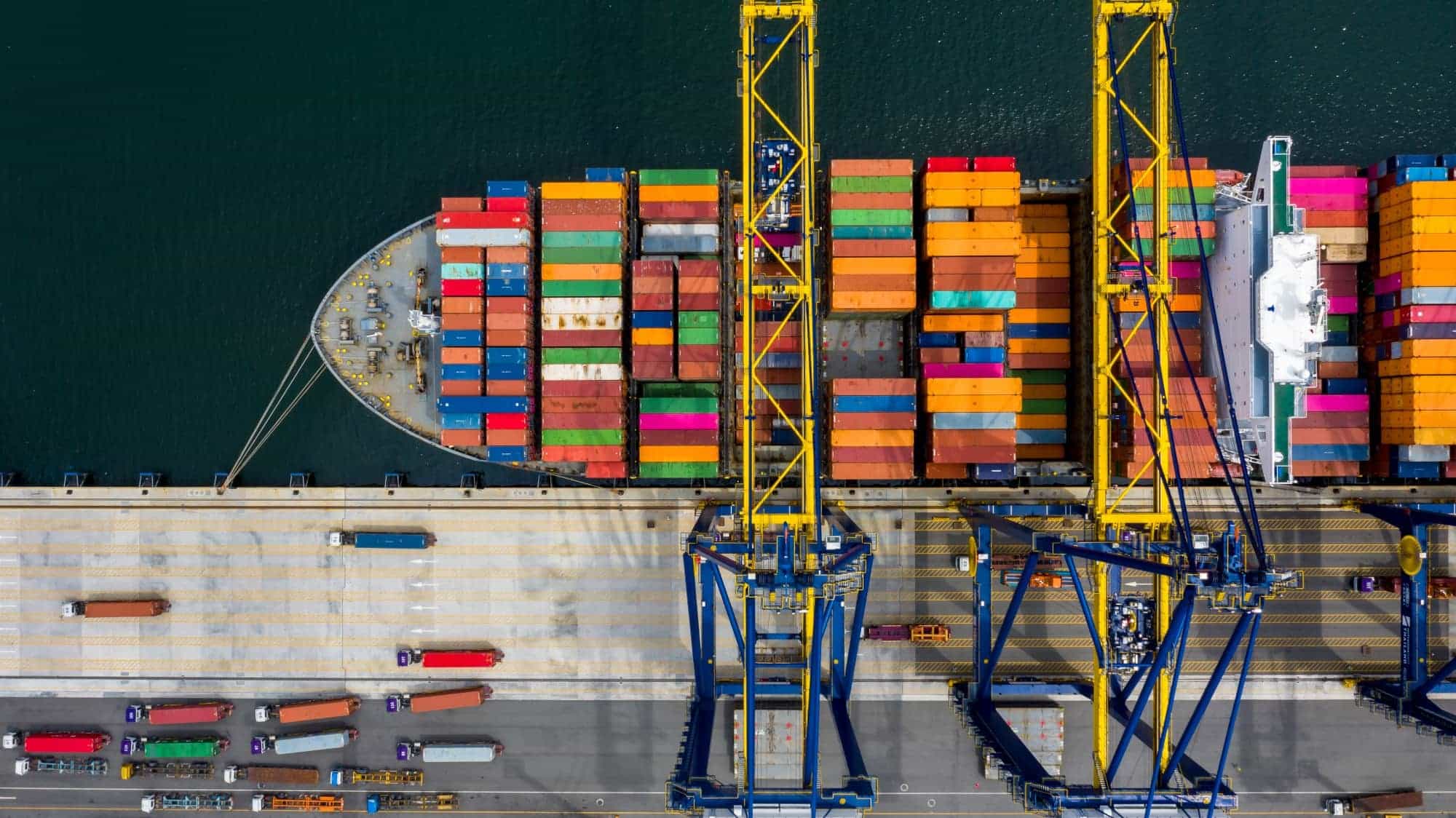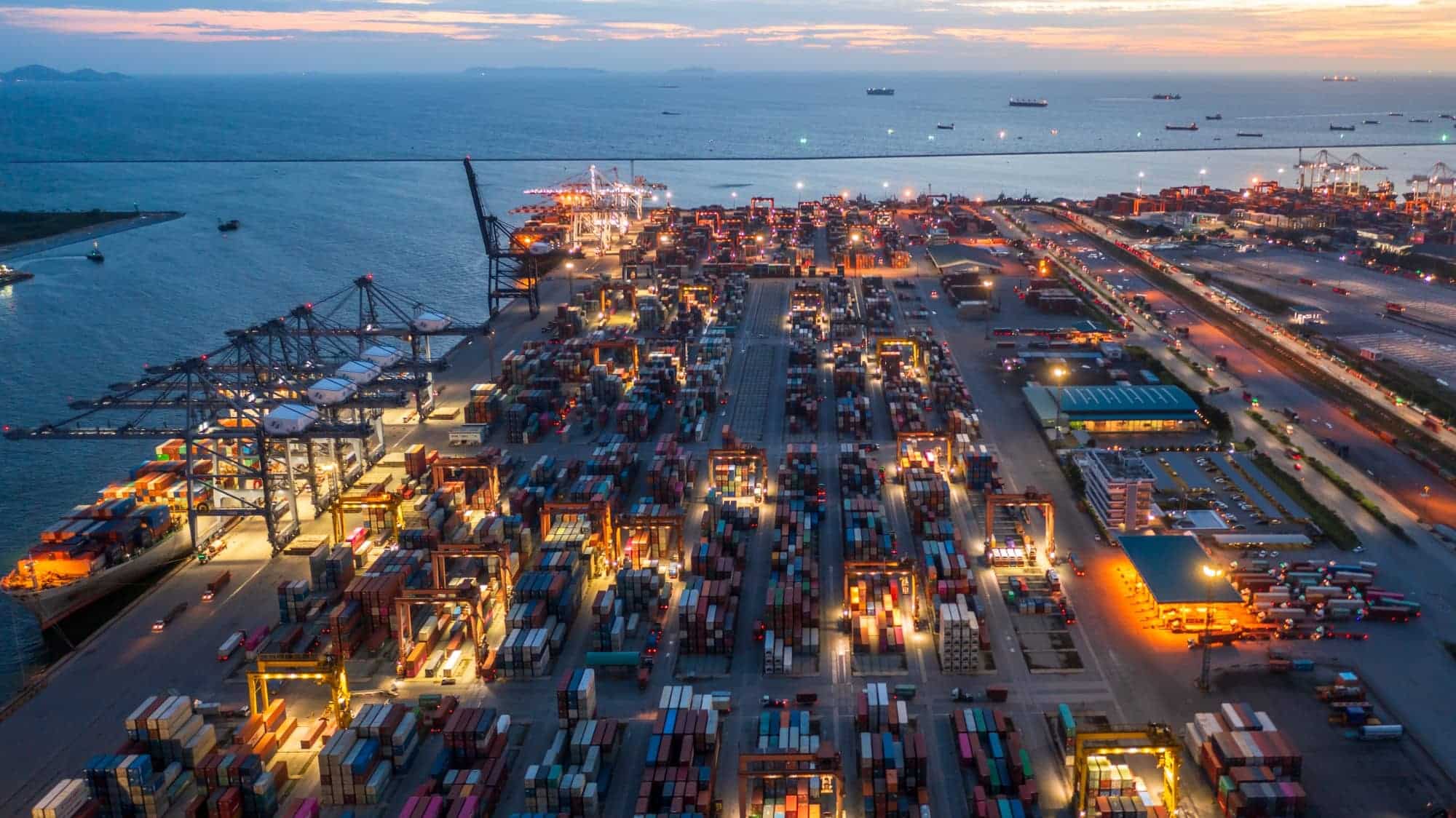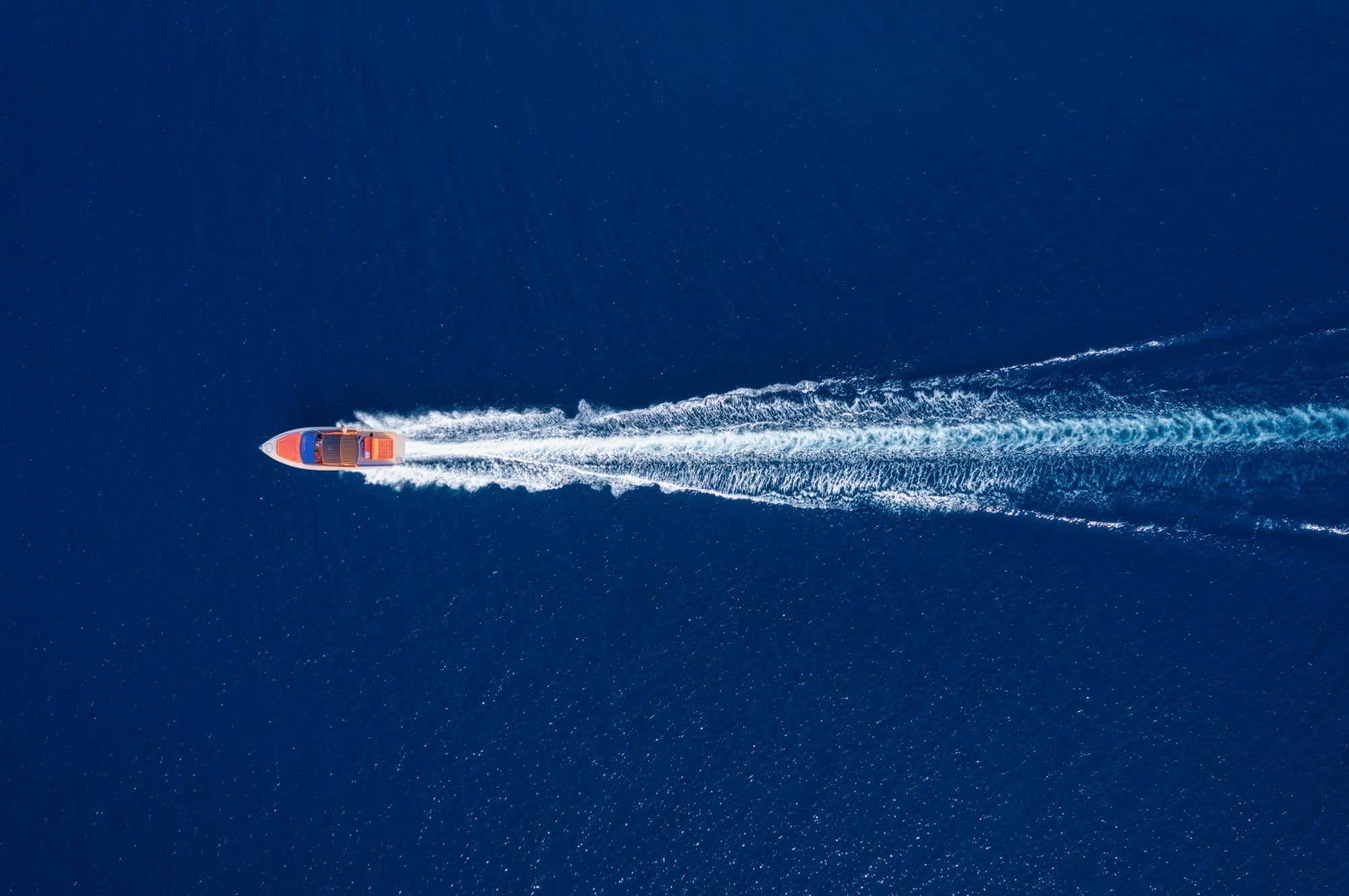How Smart Technologies Are Enhancing Efficiency In the Maritime Industry
We’re living in a world of rapid change, with entire industries being disrupted by technology. That’s especially true in the maritime industry, where PoE technology and other smart technologies are leading to a revolution in ship management and navigation.
As the speed of technological disruption continues to increase, smart technologies bring with them undeniable opportunities that can dramatically increase efficiencies and competitiveness. A more than 15% annual growth certainly doesn’t hurt technology like Power over Ethernet aid in that revolution.
Though traditionally slow to change, the marine industry is facing a crucial crossroads. Shipbuilders and operators who don’t jump on board with these new development risk being left behind and lapped by competitors more willing to embrace them. Let’s dive into the nuances of this industry, focusing on the smart ship technologies leading the trend and where PoE technology fits into the equation.

The Maritime Industry, Defined
For the purposes of this guide, we’ll define the maritime industry as any commercial operation surrounding sea-based travel and cargo transport. That includes both the operation of the ships and the secondary fields surrounding the safe creation, operation, and management of both individual ships and larger-scope water-based operations.
More specifically, it is the field concerned with the building, operation, and repair of commercial, exploratory, service, and other sea-based vessels that operate on the open sea, inland rivers and canals, and Great Lakes. As defined by Law Insider, it also includes the more tangential aspect of port and marina operation.
As much as 75% of the world’s cargo is transported via ship, and 95% of United States trade is conducted via these waterways. That makes the industry surrounding these operations one of the most significant fields and networks of influence in the world.

11 Smart Ship Technologies that are Revolutionizing the Maritime Industry
A basic understanding of the sheer scope existing within the maritime industry begins to explain the opportunities that smart technologies can bring. In the right context, these technologies can make a massive impact in building better operations, both within ships and in the logistics involved with planning complex shipping routes and fleets.
1. Artificial Intelligence (AI)
The average cargo ship carries up to 40% of unused space, simply due to the complexities of modern maritime trade. For larger container ships, that can equate to more than 8,000 containers not being transported for every single trip.
The ability to shift millions of containers around the globe, all working on different priority and urgency levels, makes utilizing the full capacity of any cargo-based transfer almost impossible. Enter artificial intelligence, automated technology that can cut this wasted space in more than half.
AI powers modern cargo optimization systems, which dynamically classify containers according to variables like weight, priority, and destination. These systems can run millions of simultaneous simulations designed to optimize the storage and transport of containers, building efficiencies that are impossible to reach with manual calculations.
2. Big Data
Successful AI hinges in large part on the data feeding into it, which makes big data analytics such an important component of the modern maritime logistics equation. Millions of data points continually arrive from ships, containers, and ports that need to be categorized and analyzed almost immediately.
Without effective big data analytics, this data becomes near-irrelevant noise. The right analytics system, however, can turn the same points of information into effective, automated reports designed to provide instantaneous insights.
These insights can improve decision-making on both a macro level, such as the ideal shipping route depending on the vessel’s weight, and on a micro level, such as how to respond to changing weather conditions.
3. IoT Onboard
We know the Internet of Things (IoT) as largely land-based, describing the ability to connect everyday devices to the internet to offer both connectivity and remote control. Though it is just getting started, similar IoT technology is rapidly gaining traction in the marine industry as well.
Put simply, IoT technology simplifies and centralizes onboard operations. Captain and security personnel can control anything from lighting to hatch doors and hydraulics, reducing the amount of personnel needed aboard a cargo vessel and allowing the personnel still on board to focus on a more strategic level.
The possibilities are nearly endless and extend to passenger vessels as well. Here, guests can receive remote access to cabins, while emergency overrides can control lighting and cabin access remotely. Across these use cases, IoT devices also provide constant data on usage that can lead to optimizations over time.
4. Digital Route Management
The times of weathered skippers deciding shipping routes based on experience and hunches are long gone. In today’s navigational environment, inputs like weather conditions, ocean conditions, port traffic, and even piracy alerts can all have drastic inputs into the best possible route for both efficiency and safety.
Digital route management systems are designed to account for all of these trends and more. Real-time data allows for continuous optimization of individual shipping routes, even shifting in the course of a journey depending on need. In addition to route calculations, these systems also provide information outputs for ship operators to make direct calls.
5. Autonomous Maneuvering
Autonomous driving is becoming an increasingly realistic goal on land, but the shipping industry is ahead of the curve in this aspect. While the size and complexity of ships can make complete autonomous navigation difficult, smart technology allows operators to take a backseat.
In this scenario, the vessel can stay on course as the operator only checks occasionally that all is going according to plan. This eliminates human error and allows for the implementation of the above-mentioned real-time route management systems to turn into action without delay.
6. Intelligent Propulsion Systems
Any ship operator knows the complexities involved with managing the ship’s propulsion. The pitch, angle, and speed can all be controlled manually, with adjustments necessary to account for the situation and ocean conditions but also dangerous in case of human error.
Smart technology can take over these operations, making adjustments dynamically and based on both external factors and data inputs. The captain can now read the data from the propulsion system and only make tweaks when required, while the system’s connectivity can provide reporting and alert the engineers when maintenance is necessary.
7. Integrated Control Systems
Ships are among the most complex mechanical systems in the world. And yet, they rely on consistent operations in an isolated environment, with few or no support systems in the course of any given journey. Integrated control systems can help even small crews keep an overview of every aspect of the operation.
Through IC systems, captains and their offers can leverage smart technology to monitor anything from propulsion to communication and the operability of individual system performance. Failure or dangerous performance levels on the engine or other vital equipment can raise instant alarms that allow for a fix before the issue becomes concerning.
All of it happens centrally, allowing for safer and more reliable operation of every aspect of the ship.
8. Smart Defense Technology
As the maritime industry stretches into military operations, security becomes an increasingly vital point of consideration. Ships are necessary to provide supply and relay information in the event of a communications breakdown while also transporting personnel if they aren’t safe.
The smart technologies driving modern iterations of the industry can significantly ease the logistics involved in this type of defense planning. Support routes and plans can be planned ahead of time with maximum efficiency, while software can continue reliable operations on the ship and those relying on it in the event of a code red.
9. Blockchain
We’re only beginning to see the game-changing potential of blockchain technology, which describes a decentralized system in which interactions and transactions are distributed digitally, with no single owner of information. Blockchain systems are impossible to hack or breach, making them a tool with much potential in the marine industry.
Consider, for example, a scenario in which data and processes have guaranteed accuracy and integrity. All of the technologies mentioned to date become more reliable. Data ecosystems become simplified, while transactions are secure by default, and all ends of the network are empowered towards efficiency.
10. Robotics, Drones, and 3D Printing
The maritime industry is no stranger to robotics, with large shipping companies already leveraging robots for dangerous operations related to the loading, unloading, and maintenance of both ships and cargo. Drones can play a similar role, helping ship operators inspect and even repair parts of the ship they wouldn’t otherwise be able to reach.
And that’s just the beginning. 3D printing brings with it the ability to create replacement parts almost immediately and without an external supply. Even a ship on the high seas that has a crucial component fail at the worst possible time is now able to manufacture its own replacement quickly, then use robots to install it and avoid jeopardizing the journey or shipping timeline.
11. Virtual Reality (VR)
Virtual reality has become much more than a recreational technology “toy.” In the maritime industry, it’s becoming especially valuable in training and maintenance applications.
In a training environment, VR helps future officers, technicians, and other marine professionals see and interact in virtual environments based on real-life scenarios. The learning becomes more engrained and more effective as a result.
At the same time, VR can also play a core role in inspections and maintenance. In connection with drones, technicians are able to view immersive images of any part of the vessel, find issues, and recommend repairs without the requirement of a physical presence at the site.

PoE Technology and the Maritime Industry
PoE, short for Power over Ethernet, has the potential and opportunity to drive the implementation of many of the technologies mentioned above. As a result, PoE technology can be immensely beneficial for the special demands the maritime industry brings with it.
What is PoE Technology?
Put simply, PoE (Power over Ethernet) describes a system in which both electrical power and network data are sent through a single network or ethernet cable. The device only requires one connection to be connected to both power and the internet or an internal network, instead of the traditional two cables or WiFi connection.
How Does PoE Work?
PoE works with most common ethernet cables as long as they are labeled Cat5 or higher and follow the 2018 IEEE 802.3bt. Cords within this standard use four of the eight internal wires for data, leaving the other four unused and ready to transmit DC electrical currents. Because the electricity and network information are carried on differing frequencies, they can co-exist within the cord without interference.
What Are the Benefits of PoE?
When installed comprehensively, PoE brings with it significant benefits, both within the maritime industry and other fields. Installation costs are lower thanks to less cabling or connections to power outlets needed. That also decreases electrical hazards, both during installation and operation.
Because of their increased flexibility, PoE networks are both more flexible and more scalable, leaving operators able to install these plug-and-play devices without expensive or complicated wiring, along with the simpler installation of new devices. Finally, the ability to connect more smart devices to a central network increases the potential for data insights through those devices, enabling many of the technologies mentioned above.
How PoE Can Satisfy the Special Demands of the Maritime Industry
The benefits of PoE technology in the maritime industry are not just theoretical. In addition to building reliable data and power networks throughout the complexities of a given vessel, the technology is also robust enough to withstand even the harsh environment of the open ocean.
Seawater is corrosive. Networks can be unstable, while the weather can change at a moment’s notice. The moving target in the course of a journey can make establishing a location-based network impossible. And yet, PoE devices are designed specifically to withstand and even thrive in these types of challenging environments.
PoE switches, injectors, and extenders are all available in more rugged, protected designs created specifically for these harsh conditions. Extenders can ensure that the network isn’t limited to a 100m distance. All of it comes in hardened shells specifically designed to protect against the harsh outdoor conditions and weather that are so common in the maritime industry.

Satisfy the Demands of the Maritime Industry With Reliable PoE Technology
Of course, not all hardware is created equal. You need to be able to trust the manufacturer to deliver devices that can withstand some of the harshest environments on the planet for years. Here, Versa Technology can help.
Our mission since our inception in 1994 has been to sell market industry-leading products that are versatile, user-friendly, and cost-effective. We deliberately push the boundaries of protocols and performance, which has enabled us to develop an expansive product portfolio that includes industrial PoE technology tailor-made for the conditions typically encountered in the maritime industry.
We can help you expand your technological capabilities, both for individual vessels and larger shipping operations. Contact us to start a conversation about a potential partnership.

